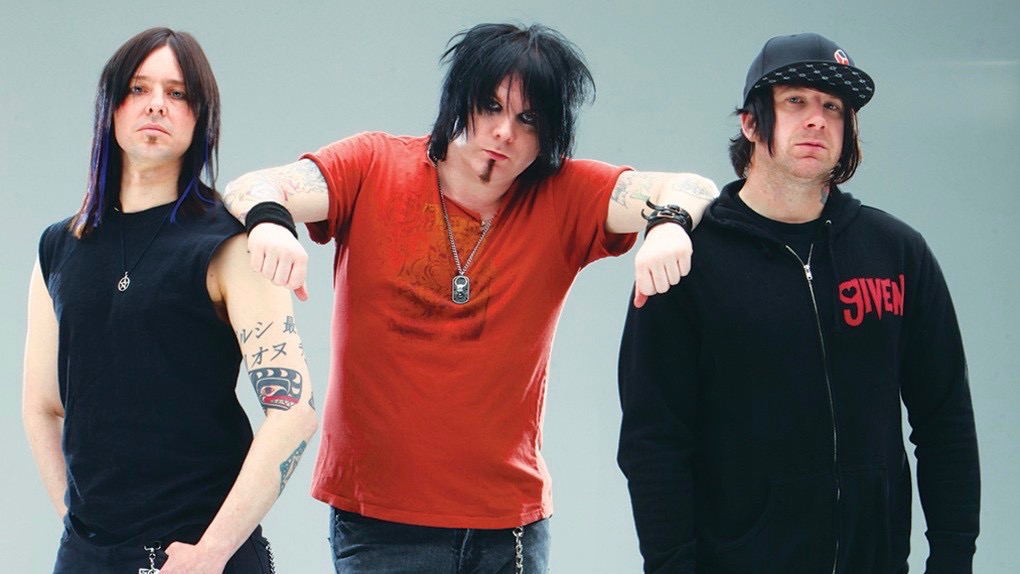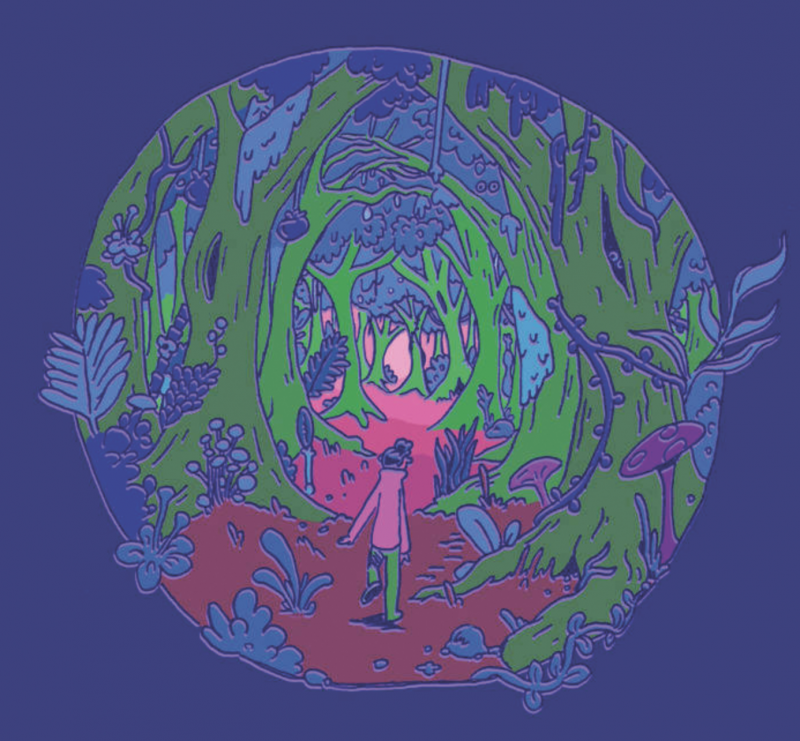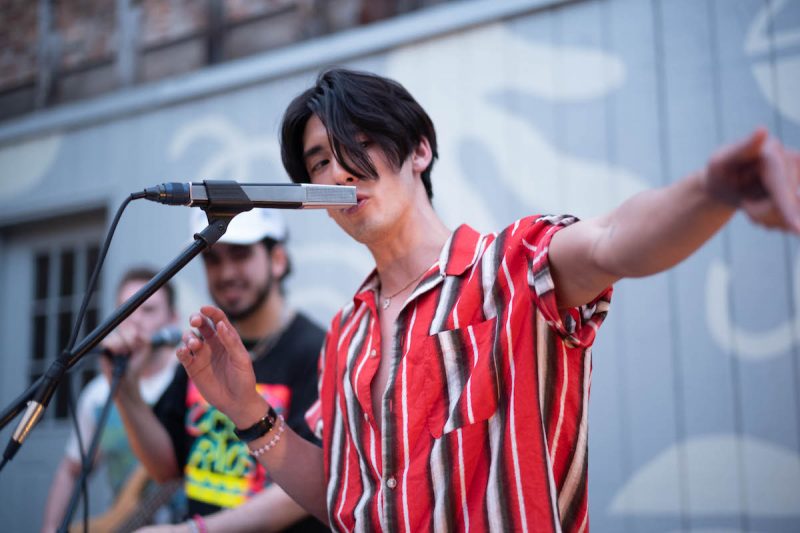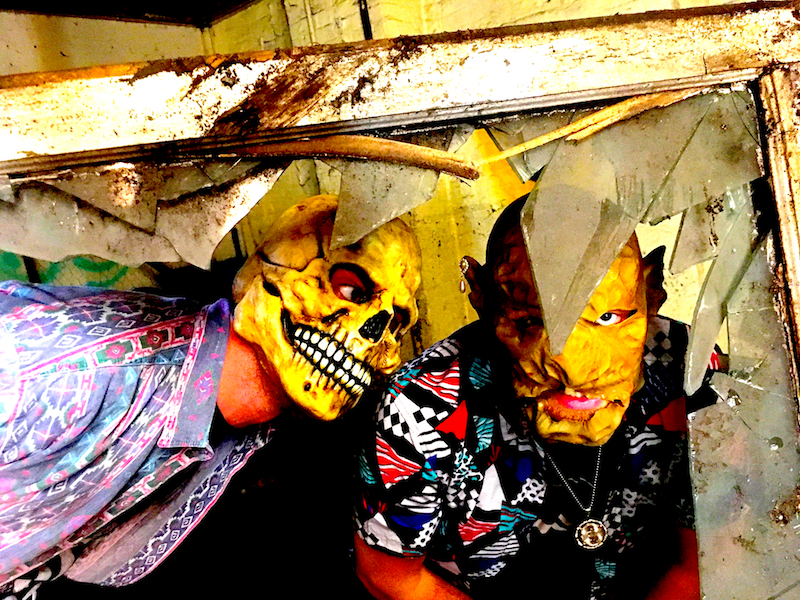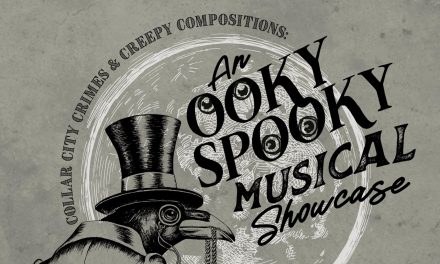This article first appeared in The Alt on April 12, 2017.
There’s an old joke about the toll that hard living has on the higher functions of the human organism: Drinkin’, druggin’, debauchin’ and all the filthy varieties of bi-terminus candle burnin’, what do they do? They kill brain cells. But you already know the punchline, so–how you feelin,’ Capital Region? – throw the horns and all together now:
“Only the weak ones!”
For 20 years the Erotics have consistently and publicly personified the kind of rock n’ roll excess and degeneracy that was once inseparable from the genre itself. The very term “rock n’ roll” is a euphemism for the most intimate kind of hedonism after all, right? But in that same 20 years, rock n’ roll changed. In what seemed like a mid-’90s instant, the tone shifted from the celebratory defiance of Axl in a litter of whisky bottles to the withdrawn emotionality of Kurt swaddled in a thrift-store cardigan. The music was still heavy (to say nothing of the substances), but so too was the spirit of the thing.
The epicenter of heavy music—in popular imagination, anyway—shifted from sunny boulevards and sleazy nightclubs full of hairsprayed partiers in L.A. to the murky woods and ranch-home rec rooms of flannelled indoor kids in the Pacific Northwest. It wasn’t that grunge wiped everything else off the map: the various strands of hair and heavy metal continued—some of the early practitioners even became superstars in their own rights. Guns n’ Roses, Metallica and a few others maintained or gained Monsters of Rock status. But, generally, fun sure took a hit. Hell, Cobain went so far as to write lyrics actually mocking people for enjoying his own songs in the wrong way.
Back in Albany—a town as suited to grey, gloomy and grouchy as any—the Erotics’ main man, singer-songwriter-guitarist Mike Trash, surely took notice of the trend. He’d been to L.A. pursuing a deal with a previous band. In fact; a deal that nearly materialized just before the powers-that-wanna-be decided they were looking for something Nirvana-ier. So, he knew which way the wind was blowing.
He just didn’t give a fuck.
As testament to that spirit, the Erotics have just released a double-disk compilation of their punk-and-metal infused sleaze on Cacophone Records. It’s neither a Greatest Hits, as it contains a handful of as-yet unreleased numbers, nor is it an anthology, exactly.
Attempting to describe the release, Cacophone’s Jeff Smith (who runs the area label with his brother Kip) tells the story of handing the album to another Albany-based musician. The other player—a guy whose own band had a decent following, solid reviews and regular airplay back in the day–commented approvingly, “Wow, that’s quite a catalog.” Smith laughs in a kind of admiring wonder: “Catalog? This is seriously nowhere near all the songs that Mike has written. He’s incredibly prolific. When Kip and I first got involved with the band, almost 20 years ago, he was recording a demo and before we knew it he had 26 songs. We had to get him to pick just his favorite 16.”
The new album, graced with an illustration heavy on assorted devilry, is titled 20 Years of Nothing to Show for It, and the liner-notes essay, written by musician, Erotics’ accomplice and simpatico gonzo scribe Bill Ketzer, is headlined “Jagermeister, Cannibalism and Dildos.” Considered in its entirety, 20 Years is, unsurprisingly at this point, wholly on message.
So, who’s this soft-spoken dude sipping cola through a straw across the bar table from me?
It’s an early weeknight, granted, and Trash (ne Clynes) has got to drive back to Colonie, where he lives and cares for his father, after our talk. He’s a musician, but he’s an adult, you know? The rock theologians can argue the “better to burn out than fade away” riddle; the “better to be home than in Albany County Correctional” is a settled point. Black-clad and coiffed with a Dead Boys hairdo, Trash looks the part, even offstage. But in conversation, he seems relaxed and, if anything, disinterested in lengthy or overwrought explication of his life as an Erotic.
“At this point, it’s just what I do,” he says. If not pressed, it seems that’s as much explanation as Trash would himself need. Even when pressed, Trash’s relationship to his evolution as a hard-rock musician is surprisingly domestic, homely.
He grew up in the Delaware Avenue section of Albany. The eldest of three, he was the first to get into music, and it was in pretty standard fashion for the times:
“Yeah, I started paying attention in the early to mid-’70s. Everything I liked on AM radio, my mom would take me to Record Town in Delaware Plaza. I’d get the 45s. Early on it was Stevie Wonder, Elton John. Nothing hard rock, at first.”
Parents supportive of such tuneful early influences are easy enough to grasp. But isn’t there something off Elton John’s beaten Yellow Brick Road? Some harbinger of delinquency and decadence? Trash says that his folks did get tired of the complaints lodged by the nuns at St. James, where he was schooled until eighth grade. But as he relates the story of his transfer from the Catholic school to Albany’s public Hackett Middle School, it sounds as much that his parents were exasperated by the griping nuns as by anything he had himself done to earn the sisterly ire. When Trash was turned on to the potentials for heaviness and the allure of musical evil (specifically by “Go to Hell,” the B-side to Alice Cooper’s “I Never Cry”) and decided it was time to throw his pick in the ring, there was no protest.
The journalist wouldn’t mind a dramatic “Footloose”-style “no dancing in this town” standoff between oppressive authorities and expressive teen, but it turns out simpler than that.
“In ’82, I wanted a guitar for Christmas.”
The path, comparatively speaking, for Trash’s entrée into the field was clear. But, even early on, there was a difference between his interest and the contemporary interest of nearly every teen of the era with a radio: His interest lasted.
“We started an imaginary band, at first. This one’s gonna play guitar, this one’s gonna play bass, you know? Only me and the drummer stuck with it. Everybody else got into skateboards, or BMX bikes.”
Self-explanatory as Trash’s view of his commitment seems to be—playing rock music is more fun than other things—Jeff Smith is struck by it, as well: “It is amazing that after 20 years he can still do it, still enjoy it. The enjoyment he gets out of it doesn’t seem to be about ego. Some guys want to be the god. That’s not Mike.”
Running the label, Smith and his brother have had significant exposure to musicians (and to musicians’ egos). While the Erotics style of propulsive, irreverent rock had inherent stylistic appeal for the Smiths, there was also the easy charisma of Trash, the “walk the walk” sincerity of the frontman.
“Well, the more they drink, the better it sounds to them and, they assume, to everyone else. It leads to a really fun atmosphere. I never really liked going to SPAC or the Glens Falls Civic Center, that kind of thing, for rock shows. I like a place where you can go have a beer with the band after. The Erotics? They’re getting shit-faced drunk with their fans and putting it on YouTube.”
Trash concedes that there’s a, let’s call it, a lingering youthfulness about his band and his crowd. “All of my friends—and some of them are older than me—we still act like we’re 20.” But, that being said, time does march on. “I can’t go out on a weeknight. I mean, I can, but in my 20s I could be out at 4:30 in the morning and get up at 7 to be to work at 8.”
The material on 20 Years of Nothing to Show for It is rife with references to the costs of such a lifestyle: From the lead-off track on Disc One, to “We’re Never Alright,” “Drink Fight, and Fuck,” or “Got Drunk Again,” the tracks broadcast the underlying theme of waywardness; “Hell Is Where My Heart Is,” “Born to Let You Down,” “Kicked in the Teeth by Love” hint at the consequences of such recklessness, perhaps.
But for a band that has for about half its career had a solid core (Trash, bassist Billy Beer and drummer Johnny Riott), has toured both the states and the UK (they are soon returning for a rip through Scotland), placed its tracks in hysterical B-movies like Helen Keller and the Night Wolves, it’s another type of song that seems most representative.
Smith speaks of the variety in Trash’s songwriting. The songs can be snotty, sarcastic, politically incorrect to the point of offensiveness. But Smith hears more in them: “I think there’s a lot of pain in his jokes. It’s his way of dealing with things. Despite his sense of humor, he has the ability to write with his heart on his sleeve. The pendulum swings both ways. I think people respond to that, even if they don’t know that’s what they’re responding to.”
It’s that combination of battle-scarred and unbowed, the gallows humor, the unboastful way in which Trash and co. seem to invite judgment or criticism for the great pleasure of dismissing it that seems most rock n’ roll to me.
When Trash looks forward to his eventual retirement from his job with the state—the details of which he skips over with a bored shrug—when he expresses his appreciation for the attendant benefits and the pension, it’s all in service of the soft-spoken and enduring passion.
“Some people golf, I guess. Or work on their roofs. I can retire in seven years. Then I can tour more.”
So, it’s my own favorite of the 46 songs on 20 Years With Nothing to Show for It that seems most emblematic: Mike Trash may yet prove to be “The Last of the Rock N’ Roll Motherfuckers.”

